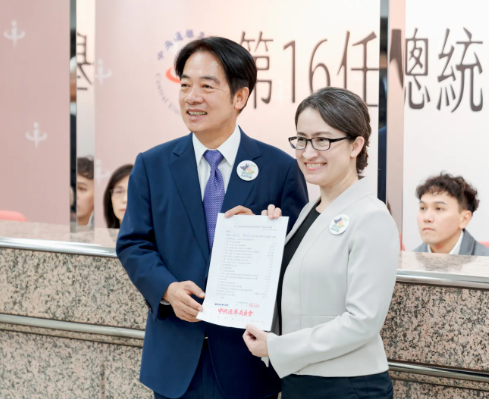As the 2024 Taiwan presidential election enters its final countdown, the Democratic Progressive Party’s (DPP) presidential candidate, Lai Ching-te (William Lai), and vice presidential candidate, Hsiao Bi-khim, officially registered on November 20, becoming the sole confirmed candidate pair. On the opposition side, the Kuomintang (KMT) and People First Party (PFP) planned to collaborate, but they have yet to reach a consensus on issues such as the vice presidential candidate. With only three days left until the registration deadline, the blue and white camps remain deadlocked.

The Lai-Hsiao pairing has garnered significant attention, with both individuals possessing rich political experience and international exposure. Lai Ching-te, a former Vice Premier and Premier, as well as a former mayor of Tainan, boasts a deep understanding of local governance and administrative management. Hsiao Bi-khim currently serves as the representative to the United States and has demonstrated outstanding performance in the field of diplomacy. She has also held positions such as DPP spokesperson and legislator.
After registering their candidacy, Lai Ching-te declared that their combination is the “strongest team” and will lead Taiwan towards a brighter future. Hsiao Bi-khim expressed her full support for Lai Ching-te, pledging to work tirelessly for the Taiwanese people.
On the opposition side, the KMT and PFP intended to collaborate, but disagreements on the choice of vice presidential candidate and other issues have persisted. The prolonged discussions and inability to address critical political and policy matters have led to growing impatience among supporters, some even expressing strong dissatisfaction with the opposing party. Communication gaps and disagreements have hindered progress in blue-white collaboration.
As of November 21, negotiations between the blue(KMT) and white(PFP) camps are still ongoing, with no final consensus reached. If the two parties can overcome their challenges and collaborate, it will have a significant impact on the 2024 presidential election. However, failure to reach an agreement may adversely affect the opposition’s electoral prospects.
Analysts believe that the Lai-Hsiao pairing holds certain advantages, but a collaborative effort from the opposition could also become a formidable force. The outcome of the 2024 presidential election will depend on the development of both camps’ electoral situations and the changes in the international landscape.
